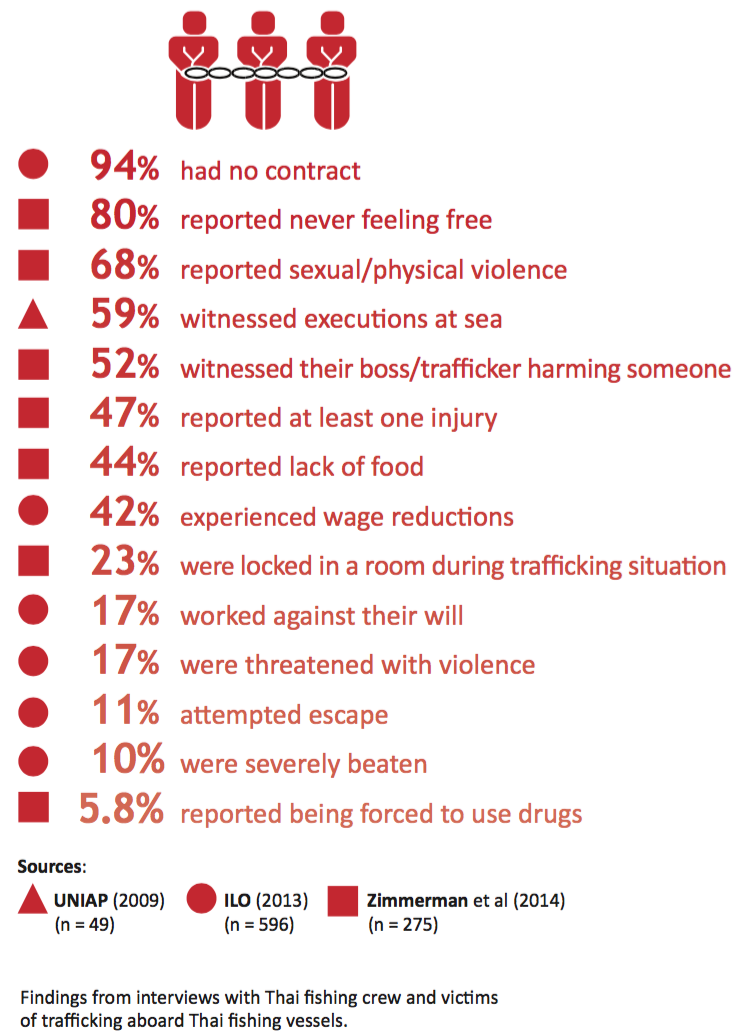Slavery

- Captains of outlaw ships inflict capital punishment and fishermen frequently kill each other in brawls
- Global fishing fleets have documented several cases of serious human rights and slavery issues.
- Reports of labour abuses and human rights violations have been recorded by several fishing fleets operating in the high seas.
- Sick crew members who could have received medical attention were neither treated, nor taken to port and consequently died
- 59% OF TRAFFICKED MIGRANTS interviewed on Thai fishing vessels reported witnessing the murder of a fellow worker
As there is weak, if any, monitoring of fishing in international waters, fishing crew suffer under poor working and living conditions, often lack access to food and water and can be victims of serious physical violence.
Most crew from poor SE Asian countries are lured with the promise of decent, well-paid jobs, but end up as modern indentured slaves – often receiving no pay nor being allowed to disembark for years at a time. This happens because governments do not monitor the governments granting fishing licenses or the ports who fail to properly inspect and manage the vessels.
The high seas are crisscrossed by vessels operating outside the law – fishing in another country’s territorial waters, with crews trapped in debt to the owners or intermediaries. They are unable to jump ship or complain about the appalling conditions and lack of safety. When shipowners run short of money, ships are often anchored out of port and their crews marooned with no pay and no way of getting home. Most are desperate men from the poorest countries. Their identity cards have been taken from them when they board. If such conditions were discovered in factories on land, there would be “immediate outrage, criminal investigations and consumer boycotts. Not so at sea.

SOLUTIONS
- Require shipowners to show proof of funds to cover four months of crews' wages and the costs to repatriate them.
-
Require operators to prove they can cover costs that result from death or long-term disability of seafarers due to occupational injury.
-
Expand the requirements above to fishing boats that are currently exempt from this mandate.
- Companies should avoid any manning agencies used to recruit and manage crew members. Additionally, they insist that they be provided copies of the contracts signed by workers, while prohibiting the use of up-front fees that are often used to trap workers in debt.
- To be extremely diligent, companies can hire consultants to conduct spot checks as well as check for common problems like hidden deductions withdrawn from workers' paychecks, promised wages that were never paid after workers returned home, or blacklisting of workers who speak uo about environmental or labor violations
TAKE ACTION